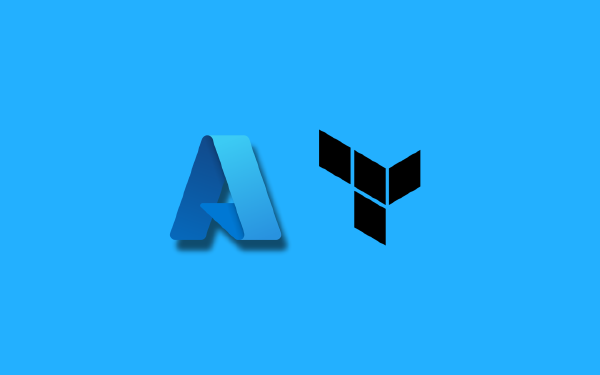Writing a reusable workflow in GitHub is a great way to DRY (Don’t Repeat Yourself).
I recently wanted to write a reusable workflow that could handle a given set of Terraform configuration files. I will call such a collection of Terraform configuration files a Terraform project, or simply a project, from now on. In this recent time in my life I had several Terraform projects in a single git repository that I wanted to deploy individually.
The challenge with a reusable workflow is in handling inputs and outputs. To be fair there are other challenges as well, but this is the one I will focus on in this article. All your Terraform projects have a different set of input variables and a different set of output values. Each project is unique. My goal in the rest of this article is to demonstrate one possible way to set up a reusable workflow that can handle arbitrary input and outputs. Let us get started!
The Terraform projects#
First of all, let us create our Terraform projects. For demonstration purposes each project will be simple. I will use two projects, the first I call architecture01.
// main.tf
terraform {
required_version = "> 1.3"
required_providers {
random = {
source = "hashicorp/random"
version = "3.4.3"
}
}
}
resource "random_pet" "first_pet" {
prefix = var.first_pet_prefix
}
resource "random_pet" "second_pet" {
prefix = var.second_pet_prefix
}// variables.tf
variable "first_pet_prefix" {
type = string
}
variable "second_pet_prefix" {
type = string
}// outputs.tf
output "infrastructure_output" {
value = jsonencode({
first_pet_id = random_pet.first_pet.id
second_pet_id = random_pet.second_pet.id
})
}The second project I call (unsurprisingly) architecture02.
// main.tf
terraform {
required_version = "> 1.3"
}// variables.tf
variable "pet_ids" {
type = list(string)
}// outputs.tf
output "infrastructure_output" {
value = jsonencode({
message = "Hello ${var.pet_ids[0]} and ${var.pet_ids[1]}!"
})
}The first point I want to make has to do with the outputs from each Terraform project. In the two snippets above we can see that there is only a single output defined (called infrastructure_output in both projects). This is important for the workflow to handle arbitrary outputs. Now we are ready to start writing our GitHub Actions workflows!
The workflows#
The reusable Terraform workflow looks like this
name: Reusable Terraform workflow
on:
workflow_call:
inputs:
working-directory:
type: string
required: true
parameters:
type: string
required: false
outputs:
infrastructure_output:
description: Output from Terraform
value: ${{ jobs.terraform.outputs.infrastructure_output }}
jobs:
terraform:
runs-on: ubuntu-latest
defaults:
run:
working-directory: ${{ inputs.working-directory }}
steps:
- uses: actions/checkout@v3
- uses: hashicorp/setup-terraform@v2
with:
terraform_wrapper: false
- name: Create terraform.tfvars file
run: echo '${{ inputs.parameters }}' >> terraform.tfvars
- run: terraform init
- run: terraform validate
- run: terraform plan -no-color -out "plan.out"
- run: terraform apply plan.out -no-color
- name: Handle output
id: output-step
run: |
outputs=$(terraform output infrastructure_output)
echo "infrastructure_output=$outputs" >> $GITHUB_OUTPUT
outputs:
infrastructure_output: ${{ steps.output-step.outputs.infrastructure_output }}Since this is a reusable workflow we add the workflow_call trigger. This trigger is defined with two inputs, one for the working directory and one for input parameters to Terraform. We also add output for the workflow, and as you see I am using the common output value infrastructure_output that I discussed above.
The steps in the workflow are basic Terraform steps and those are not the focus of this article. However, there are two steps that are important for the point I am trying to make. The first step I want to highlight is named Create terraform.tfvars file:
- name: Create terraform.tfvars file
run: echo '${{ inputs.parameters }}' >> terraform.tfvarsIn this step I take the value of the incoming parameters parameter and write it to a file called terraform.tfvars. This file will be automatically picked up by Terraform in later steps, and it is used to populate the Terraform variables with values. Dynamic input handled, check!
The second important step that I want to highlight is the one named Handle output:
- name: Handle output
id: output-step
run: |
outputs=$(terraform output infrastructure_output)
echo "infrastructure_output=$outputs" >> $GITHUB_OUTPUTIn this step I use the terraform output command to retrieve the value of the single output value that all of my Terraform projects have. I pipe the value of the output to the $GITHUB_OUTPUT environment variable. This allows me to then export the output from the workflow. Dynamic output handled, check! Well, we are not quite ready.
Now we need to use our reusable workflow from a calling workflow. Let me show you the complete workflow first and then discuss the important details.
name: Run a complex Terraform deployment
on:
push:
branches:
- "main"
paths:
- "terraform/**.tf"
workflow_dispatch:
jobs:
architecture01:
name: Set up architecture01
uses: ./.github/workflows/reusable.yml
with:
working-directory: terraform/architecture01
parameters: |
first_pet_prefix="snuffles"
second_pet_prefix="puffles"
architecture01-outputs:
name: Parse outputs from architecture01
needs: architecture01
runs-on: ubuntu-latest
steps:
- id: output-step
run: |
first_pet_id=$(echo ${{ needs.architecture01.outputs.infrastructure_output }} | jq -r .first_pet_id)
echo "first_pet_id=$first_pet_id" >> $GITHUB_OUTPUT
second_pet_id=$(echo ${{ needs.architecture01.outputs.infrastructure_output }} | jq -r .second_pet_id)
echo "second_pet_id=$second_pet_id" >> $GITHUB_OUTPUT
outputs:
first_pet_id: ${{ steps.output-step.outputs.first_pet_id }}
second_pet_id: ${{ steps.output-step.outputs.second_pet_id }}
architecture02:
name: Set up architecture02
uses: ./.github/workflows/reusable.yml
needs: architecture01-outputs
with:
working-directory: terraform/architecture02
parameters: |
pet_ids=[
"${{ needs.architecture01-outputs.outputs.first_pet_id }}",
"${{ needs.architecture01-outputs.outputs.second_pet_id }}"
]The first job (called architecture01) uses my reusable workflow to set up the first Terraform project.
architecture01:
name: Set up architecture01
uses: ./.github/workflows/reusable.yml
with:
working-directory: terraform/architecture01
parameters: |
first_pet_prefix="snuffles"
second_pet_prefix="puffles"I provide the working directory for the project, and I define the expected Terraform input in the parameters parameter (naming things is hard). This is all we need to do to set up the first project.
Now here comes a tricky part. How do we get the output from the first project, so that we can use it in the second project? We could directly access the output in another job by first stating that the other job needs the first job, then access the outputs by ${{ needs.architecture01.outputs.infrastructure_output }}. However, looking back at the definition of the output for my project we see the following
// outputs.tf
output "infrastructure_output" {
value = jsonencode({
key = "value",
...
})
}The output is JSON. So in my calling workflow I decided to add a dedicated job that parses the output JSON.
architecture01-outputs:
name: Parse outputs from architecture01
needs: architecture01
runs-on: ubuntu-latest
steps:
- id: output-step
run: |
first_pet_id=$(echo ${{ needs.architecture01.outputs.infrastructure_output }} | jq -r .first_pet_id)
echo "first_pet_id=$first_pet_id" >> $GITHUB_OUTPUT
second_pet_id=$(echo ${{ needs.architecture01.outputs.infrastructure_output }} | jq -r .second_pet_id)
echo "second_pet_id=$second_pet_id" >> $GITHUB_OUTPUT
outputs:
first_pet_id: ${{ steps.output-step.outputs.first_pet_id }}
second_pet_id: ${{ steps.output-step.outputs.second_pet_id }}This step uses jq to retrieve individual output values from my output JSON. Nothing more, nothing less. Then it creates outputs of its own that I can reference in later jobs.
The last job in the workflow is called architecture02, and it also uses my reusable workflow (see, we’re DRYing). How it works is exactly the same as for architecture01. I just wanted to demonstrate that we can send output from our first project (architecture01) into our second project (architecture02).
The full source code is available at my GitHub repository.




